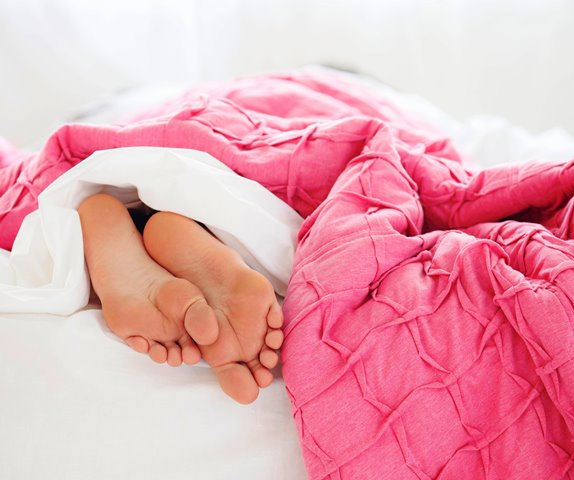Uncertainty about the future, and worry about all the things currently happening to us, that we can’t control, has left many people feeling stressed and anxious. Perhaps you’re one of them?
One of the consequences of heightened stress and anxiety is that it can stop us from getting to sleep or staying asleep. Unfortunately, we can find ourselves trapped in a vicious cycle as stress and anxiety trigger insomnia and a lack of sleep increases our stress and anxiety.
It’s vital that we get enough sleep, because sufficient, quality sleep is necessary for our immune system to run as efficiently as possible. We need a robust immune system to help defend against illness and disease.
Today I’m sharing two valuable relaxation exercises to help you get to sleep and sleep through the night. Relaxation exercises have been shown to be highly effective in reducing stress and improving sleep.
4-7-8 breathing
Deep breathing helps your body and mind relax and promotes good sleep. By taking a deep inhalation and holding your breath, you’re increasing your body’s oxygen level, allowing your body to have to work slightly less hard to function.
A long, slow exhale has a meditative quality to it that is inherently relaxing. That slow exhale is also very similar to the pace of breathing your body adopts as you’re falling asleep.
By deep breathing before bedtime, you are, in a way, mimicking the breathing patterns of sleep onset, and nudging your body and mind toward its all-important period of rest.
Here’s how to perform 4-7-8 breathing:
- In a comfortable position, with your eyes open or closed:
- Inhale for 4 seconds
- Hold breath for 7 seconds
- Exhale slowly, for 8 seconds
- Repeat several times
Progressive muscle relaxation
Used as part of a nightly pre-sleep routine, progressive muscle relaxation can help you release physical and mental tension that, left unaddressed, can interfere with sleep. It’s a simple mind-body relaxation technique that provides a way for you to become familiar with your body and the places where you hold stress and anxiety.
Progressive muscle relaxation involves working one at a time with different areas and muscle groups of the body, first tensing and relaxing them. This practice cultivates an awareness of what both tension and relaxation feel like in your body. With that awareness you become better prepared to address that physical tension and any mental or emotional stress and anxiety that accompany it.
A typical progressive relaxation routine starts at the lowest point of the body—the feet—and works gradually up to the top of the head, tensing and relaxing every area of the body along the way. Click here to download my how to guide.
Here’s to a good night’s sleep – go well ~ Tony
PS. If you’d like help with your stress or anxiety, click here – to schedule a no obligation 30 minute online discovery consultation.
I’m on a mission to help as many people as possible enjoy lives free of unnecessary stress and anxiety. If you’d like my help, or you know someone who would benefit, call/text me today on 021 056 8389 or email tony@tycoaching.nz
